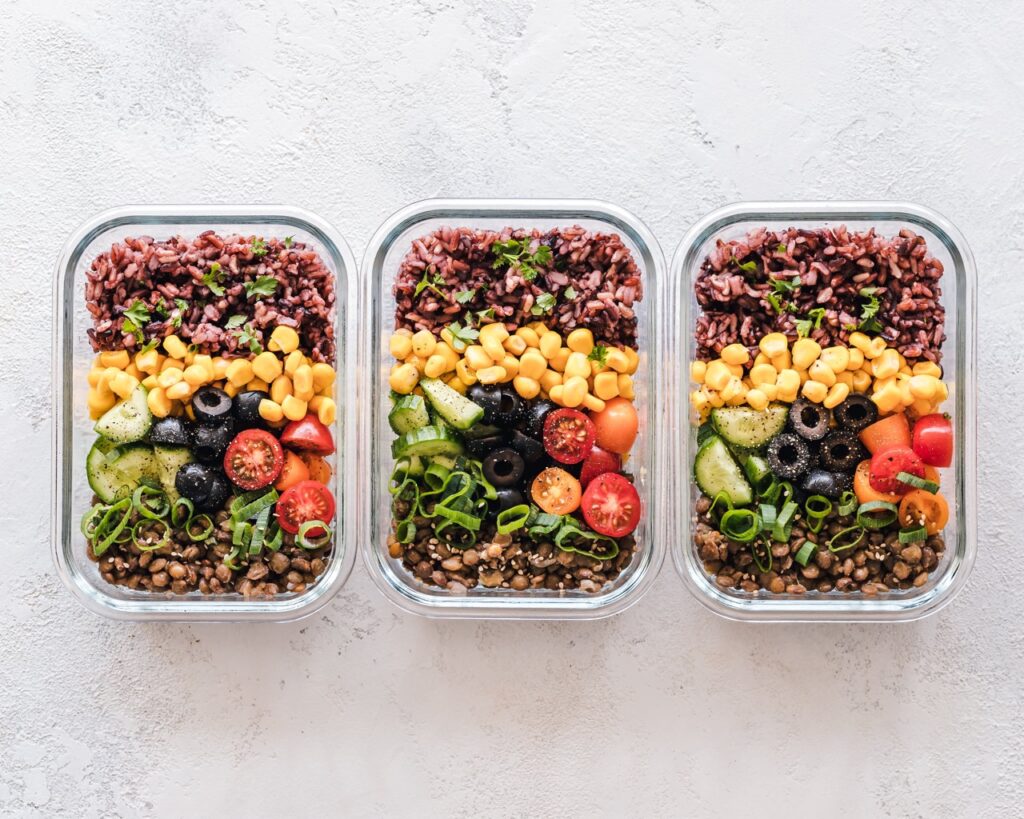Healthy Recipes
Simplify Your Diet with DIY Meal Planning Tips
Making a meal plan that makes sense is the first step towards eating a better, more balanced diet. You may take control of your nutrition, customize it to your own nutritional requirements and tastes, and eventually reach your health and wellness objectives by creating your own DIY (Do It Yourself) meal plan.
1. Define Your Goals and Dietary Preferences
Establishing your precise goals is essential before you begin meal planning. Are you trying to lose weight, grow muscle, increase your energy, or are you just trying to eat better-balanced meals? Take into account any dietary choices or limits you may have, such as being a vegetarian, vegan, gluten-free, or allergic to certain foods.
2. Assess Your Caloric Needs
Understanding how many calories you need each day is essential to creating a food plan that supports your goals. This number is influenced by factors including metabolism, age, gender, and degree of exercise. Fortunately, there are many of user-friendly applications and online calculators available to help you figure out how many calories you need to burn. This information acts as a vital compass to direct your meal planning endeavors toward a purposeful and well-balanced nutritional regimen.
3. Plan Your Meals Around Macronutrients
Carbs, proteins, and fats are examples of macronutrients, and they are the basic components of a diet that is both well-rounded and high in nutrients. Finding the right balance requires knowing what your own wellness and health goals are. Carbohydrates should account for 45–65% of your daily calorie intake in a typically balanced diet, proteins for 10–35%, and fats for 20–35%.
These percentages, however, might be adjusted in accordance with specific requirements and objectives. A customized approach to nutrition is possible by modifying the macronutrient ratios, regardless of your goals—weight control, muscular growth, or general well-being. By adjusting these ratios to your own needs, you can build a dietary foundation that supports long-term health and general wellbeing in addition to making sure you’re fulfilling vital nutritional requirements.
4. Choose Whole, Nutrient-Dense Foods
Creating your meal plan with whole, minimally processed foods in mind is essential to fostering the best possible health and wellbeing. Make a wide variety of nutrient-dense foods a priority, such as legumes, whole grains, lean meats, healthy fats, and fruits and vegetables.
These healthful options provide vital vitamins, minerals, fiber, and antioxidants in addition to a rich tapestry of tastes. Including them in your regular meals guarantees a nutrient-dense diet that supports several body systems and promotes general health. Adopting this strategy encourages a healthy relationship with food and improves mental and physical health.

5. Plan Balanced Meals
Ensuring a well-balanced dish is essential for a satisfying dinner. Every meal should ideally provide a well-balanced combination of macronutrients. Imagine a meal piled high with healthy whole grains, lean protein sources, and a rainbow of colorful, nutrient-dense veggies. This combination supports sustained energy levels and satiety in addition to offering a wide variety of vital nutrients. Healthy fats are important for general wellbeing, so don’t undervalue their relevance. Eating a fulfilling, nutrient-rich meal is made possible by adopting this comprehensive approach to meal preparation.
6. Consider Portion Sizes
Gaining control over portion sizes is essential to eating a balanced diet and meeting your nutritional goals. When portioning your food correctly, using equipment like food scales, measuring cups, or visual aids may be quite helpful. This technique encourages a healthier, more attentive attitude to eating by preventing overindulgence and ensuring that you stay within your calorie objectives.
7. Create a Weekly Menu
Now that you have a clear idea of your goals, dietary needs, and dietary preferences, go on to creating a weekly meal. When you plan your meals, take into account factors like variety, ease of use, and your timetable. This proactive strategy increases the likelihood that you will be able to stick to your food plan while also saving you time. Making thoughtful and well-informed decisions is made possible by planning ahead, which guarantees that your weekly meal will support your nutritional and health objectives. A well planned weekly menu creates the foundation for an effective and long-lasting approach to your nutritional journey, whether it’s via meal preparation ahead of time, the incorporation of various flavors, or meeting the demands of a busy lifestyle.
8. Make a Grocery List
Convert your weekly meal into a thorough grocery list that is methodically arranged according to food groups. This calculated strategy guarantees that you have everything you need and simplifies your shopping experience. Examine your pantry and refrigerator before you go shopping to see what you already have, cutting down on wasteful purchases and food waste. Making a thorough and well-organized grocery list helps you make the most out of your shopping trip and improves the effectiveness of meal preparation, which lays the groundwork for an effective and balanced diet.
9. Prep and Cook in Batches
Meal planning may be made much more efficient by setting aside some time on your calendar for ingredient prep. Spend a few minutes chopping an array of vibrant veggies, cooking large quantities of filling grains, and preparing lean meats. Divide these ingredients into portions that are doable. This preventive strategy not only helps you avoid missing meals, but it also saves you valuable time, especially on busy days.
10. Stay Flexible and Listen to Your Body
While following a meal plan gives you organization and encourages you to choose healthier foods, it’s important to keep in mind that our bodies are dynamic and that their demands might vary. Understanding your body’s cues about hunger and fullness is essential. You can eat a healthy snack to hold you over if you find yourself suddenly hungry before your next scheduled meal.
Likewise, don’t hesitate to change course if a planned meal doesn’t fully satisfy you or doesn’t sit well with you. Having a flexible approach to mealtimes facilitates a more individualized and intuitive dining experience. This may include experimenting with different recipes, changing the components, or modifying the serving sizes. Recall that the objective is to provide a fun and sustainable method of eating.
Crafting your own meal plan is an empowering journey toward seizing control of your nutrition and steering it in the direction of your health objectives. It’s a dynamic process, one that might call for tweaks and modifications as you progress. The key lies in meticulous planning, incorporating a diverse array of nutrient-packed foods, and allowing a dash of culinary creativity into the mix. This not only transforms your meals into a delightful experience but also ensures that you’re nourishing your body with the goodness it deserves. Remember, this is your unique culinary adventure, and as you navigate it with intention and flexibility, you’ll discover the joy of a balanced and fulfilling diet tailored precisely to your needs.


